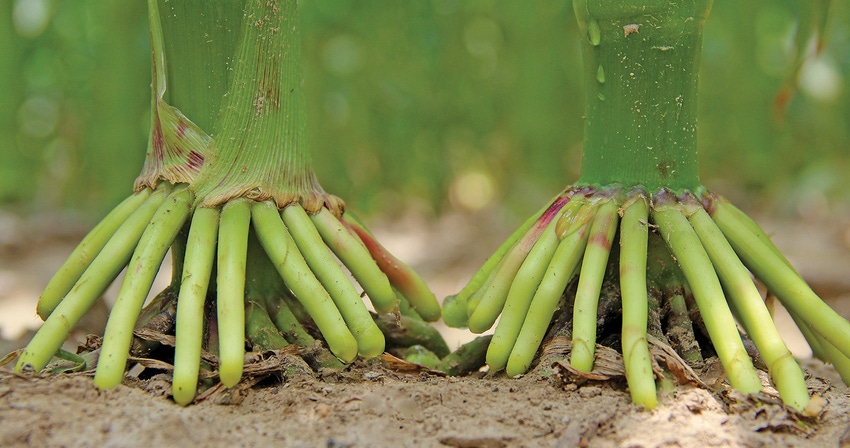
As nitrogen costs continue to soar, growers are looking for alternative ways to provide sources of the nutrient to their crops just as several companies have put bio solutions on the table.
Supplemental microbes that convert nitrogen gas in the air into ammonium to be used by the plant are currently being marketed for corn and other crops.
Pivot Bio has introduced PROVEN 40 to the market for use in corn. The microbes in PROVEN 40 colonize the roots and provide ammonia for plant uptake. The product can replace up to 40 units of the nutrient to the crop, supplementing a portion of the needed fertilizer.
Over the last few years, Pivot Bio has been able to increase the output of their microbes and is expecting to be able to push it higher in the future. They are also looking for ways to make it work for other crops.
Utrisha N from Corteva Agriscience is another biostimulant that provides the crop with supplemental nitrogen to aid the plant in development. The bacteria that compose Utrisha N colonize above-ground plant material and produce ammonia for the plant to consume without using energy from the plant.
Not a replacement
The product is not a replacement for nitrogen application and Corteva recommends using the product alongside conventional nitrogen fertilizers and nitrogen stabilizing products from their catalogue.
Other companies that have jumped into the nitrogen processing microbe market include Joyn Bio. Based in Boston, the joint venture between Bayer and Ginko Bioworks is working on nitrogen fixation for cereal crops – corn, wheat and rice. They have not released a commercial product yet, but their resources ensure that they should release a competitive product.
BioConsortia, Davis, Calif., is developing a nitrogen fertilizer in collaboration with The Mosaic Company. They have identified spore forming microbes that can fix nitrogen in the air for use on corn, wheat and other non-legume row crops.
They are currently working on field studies for their product, but commercial release maybe a year or two out.
While the other companies are using gene editing to improve the nitrogen fixing characteristics of microbes, Kula Bio is using an organic, carbon-rich energy source to enhance their microbes. Company promotions say that their product, Kula-N can produce "a cost-competitive biofertilizer that boosts a naturally occurring process to deposit meaningful amounts of nitrogen in the soil."
Finding the right mix of biostimulants and commercially available fertilizers may take some time and word is still out as to whether the tools will be practical for most farm operations. But it appears that producers are ready to explore those options.
About the Author(s)
You May Also Like






